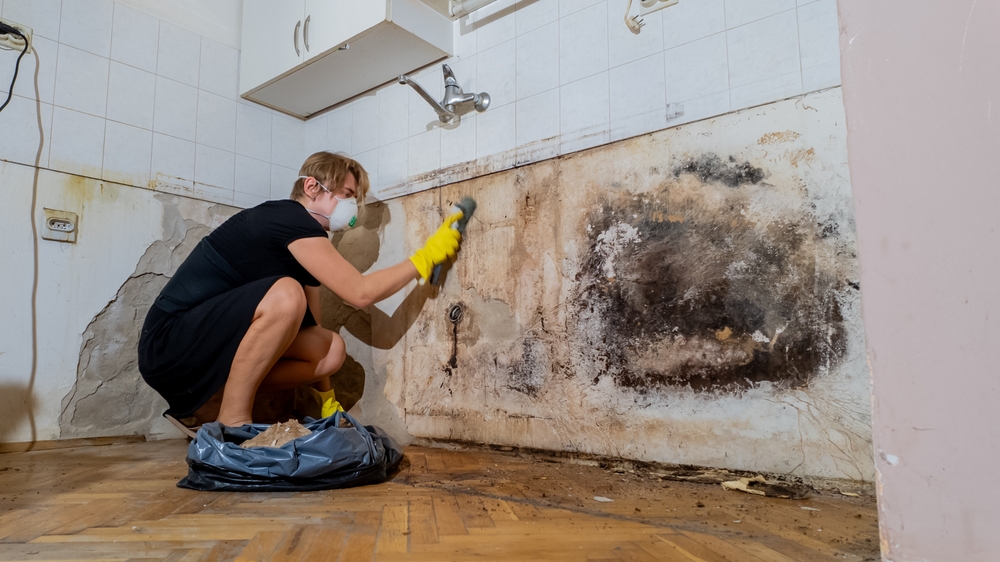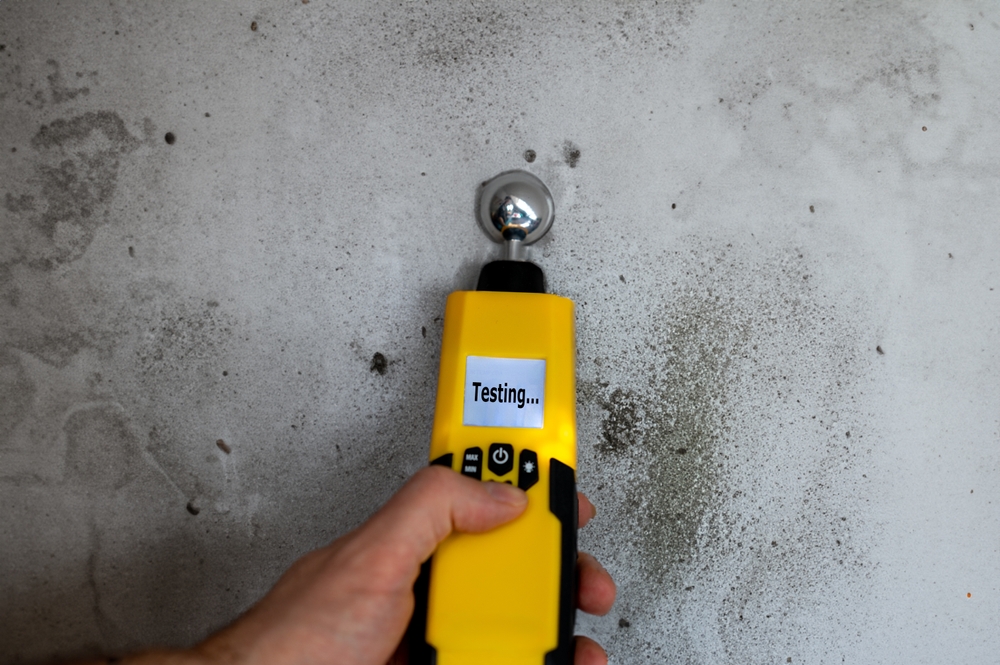Although Philadelphia’s charming, old homes make inhabitants proud, they can provide hidden difficulties; mold is one of the most frequent one. Older infrastructure, snowy winters, and the humid summers of the city provide perfect circumstances for mold growth to flourish. Mold seriously compromises your health and the structural integrity of your house; it is not only an ugly sight.
Fortunately, you can stop mold development and save your family and property by acting early and armed with the appropriate knowledge. We’ll explore the problem, Philadelphia-specific hazards, and doable actions you can take to keep a mold-free house in this all-encompassing guide.
Why Mold Growth Is a Serious Problem
Although mold is a normal aspect of the surroundings, it becomes a nuisance indoors. Mold reproduces by microscopic spores that float in the air and settle on moist surfaces where they proliferate.
The Health Risks of Mold
Mold exposure may result in:
- Allergic Reactions: Sneezing, runny nose, itchy eyes, and skin irritation are among the symptoms in allergic reactions.
- Asthma Attacks: In those with the disorder, mold spores might set off symptoms.
- Chronic Respiratory Issues: Prolonged exposure may cause coughing, wheezing, or even lung infections—especially in those with impaired immune systems—especially in those.
Particularly susceptible to mold-related diseases include young children, seniors, and those with prior medical issues.
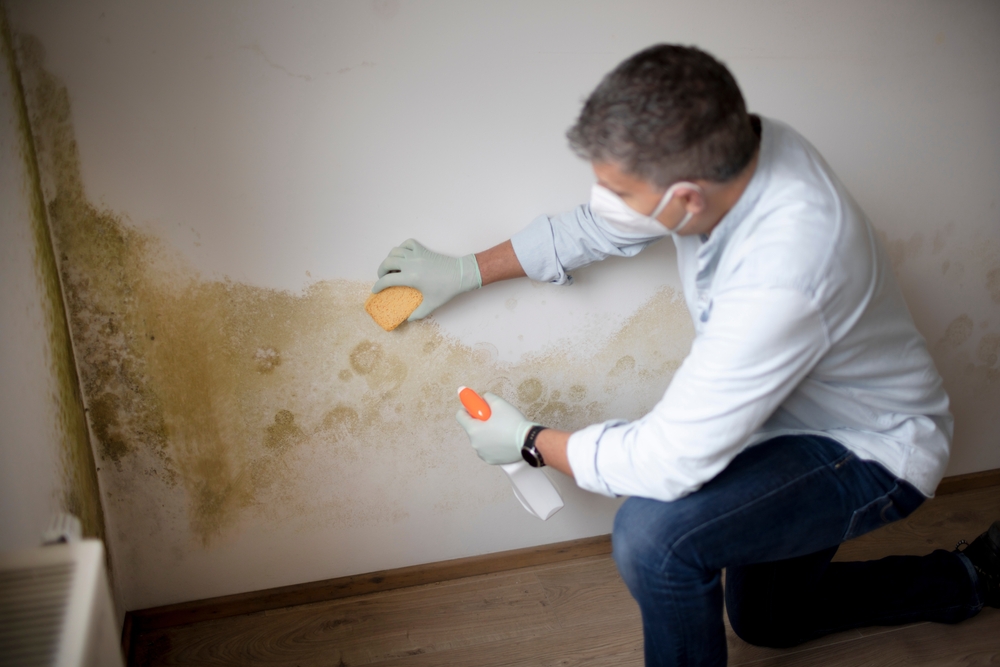
Mold’s Impact on Your Home
Mold can compromise your property in addition to your health. Mold weakens ceilings, walls, even the foundation of your house over time. Untreated it could result in expensive repairs, lowering the value and safety of your property.
Why Philadelphia Homes Are Vulnerable
Philadelphia’s unusual mix of housing features and weather patterns makes mold issues more likely.
The Challenges of Older Homes
Many Philadelphia homes were constructed decades ago; although they have appeal, their ventilation systems and insulation are antiquated. Older dwellings’ poor airflow causes stationary conditions whereby moisture can stay and mold can flourish free from disturbance.
Humidity and Harsh Weather
Philadelphia gets chilly winters and excessive humidity in the summer. These factors support mold development in various different ways.
- Summer Humidity: Particularly in basements and crawl areas, warm, moist summer air raises interior humidity.
- Winter Moisture: Through fractures in the foundation, walls, or roof, snowmelt and rain can enter homes and provide wet conditions perfect for mold.
- Seasonal Flooding: A major source of mold in Philadelphia houses, heavy spring and fall rain can cause basement flooding.
Basement Flooding
Mold development especially affects basements. Mold finds ideal habitat in poor drainage, leaking foundations, and high water tables since these cause continuous wetness.
Preventive Measures for a Mold-Free Home
Preventing mold calls for knowledge of its needs—moisture, warmth, and organic materials. Key is either removing or regulating these elements.
1. Control Indoor Humidity
The climate of Philadelphia makes controlling humidity necessary for mold avoidance.
- Invest in Dehumidifiers: Invest in a dehumidifier to help lower indoor humidity most effectively. Put them in bathrooms, basements, and other wet spaces.
- Ventilate Kitchens and Bathrooms: Ventilated bathrooms and kitchens: Vent moisture outside using exhaust fans both during and after cooking or showering.
- Monitor Humidity Levels: A hygrometer will enable you to maintain indoor humidity below the advised 50% level.
Pro Tip:
Make sure your dryer’s outside venting is correctly directed. Bad ventilation can let moisture into your house.
2. Address Water Leaks Immediately
Mold most often results from water damage. Quickly fixing leaks and handling water damage problems will help you avoid later expensive remedial action.
- Inspect Plumbing Regularly: Check pipes under sinks, around toilets, and behind appliances including dishwashers and washing machines regularly.
- Repair Roof Leaks: Look for water marks on walls or ceilings that can point to a leaky roof.
- Seal Foundation Cracks: Little openings in your basement could let water sneak in, particularly during heavy rain or snowmelt.
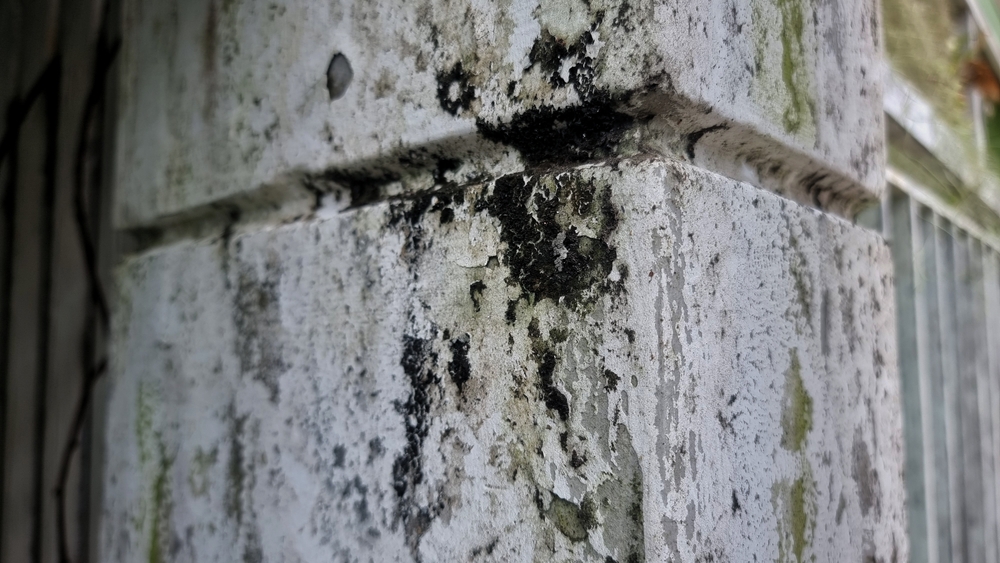
3. Improve Home Ventilation
Good ventilation preserves indoor air freshness and helps to lower moisture levels.
- Open Windows When Possible: Open windows anywhere you can. To increase ventilation, let in fresh air at mild temperature.
- Use Fans: Use portable fans to move air and lower humidity in damp spaces.
- Install Whole-House Ventilation Systems: Install systems of whole-house ventilation. These systems improve air quality by delivering constant circulation around your house, therefore lowering humidity.
Pro Tip:
To let air flow and stop mold development behind big objects, keep furniture at least a few inches away from walls.
4. Maintain a Clean and Dry Home
Preventing mold depends on timely response and cleanliness.
- Clean Regularly: Clean surfaces prone to dampness, like kitchen worktops, bathroom tiles, and windowsills. For further protection use mold- killing cleaning products.
- Dry Spills Immediately: To stop mold from establishing itself, wet floor, carpet, or furniture should be dried 24 to 48 hours.
- Use Mold-Resistant Products: Apply products resistant to mold. For moisture-sensitive locations like basements and bathrooms, mold-resistant paints and sealants are first choice.
5. Conduct Regular Inspections
Regular inspections help you find mold before it becomes a significant problem.
- Look for Signs: Search for indicators. Clear sign of a problem are musty smells, wall discoloration, and obvious mold spots.
- Check Hidden Areas: Look for hidden areas. Look under sinks, inside closets, and behind furniture—less obvious areas.
- Seasonal Walkthroughs: Make it a practice to check your house at least twice a year—ideally following winter and summer when moisture levels are highest.
When to Call a Professional
Sometimes mold spreads outside of your control even with preventative actions. When should one call on the experts?
- Large Affected Areas: Mold covering more than 10 square feet usually calls for expert remedial action.
- Recurring Issues: If mold returns even with your best efforts, a specialist can find and fix the underlying cause.
- Health Concerns: Professional mold removal might bring piece of mind if home members have ongoing medical problems.
How to Choose a Reputable Mold Remediation Company
Not every mold removal business is founded equal. Seek:
- Certifications: Make sure they come from respectable groups like the IICRC.
- Experience: Select a business with a solid history and favorable client evaluations.
- Transparency: A good company will explain their process clearly and provide an upfront estimate.
What to Expect During Mold Remediation
Expert mold cleanup entails:
- Inspection: A careful look to ascertain the degree and cause of the mold.
- Containment: Arranging obstacles to stop mold spores from proliferating during removal.
- Removal and Cleaning: Eliminating contaminated items and sanitizing impacted places should be done so safely.
- Preventive Steps: Dealing with underlying problems include leaks or inadequate ventilation helps to stop future expansion.
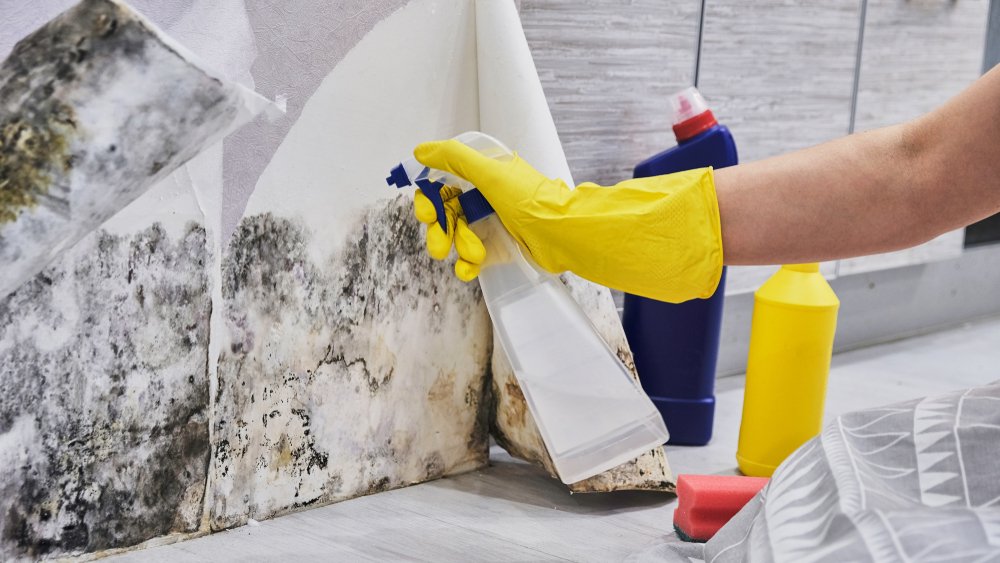
Busting Common Mold Myths
Many false beliefs about mold can result in inadequate attempts at remediation or prevention.
- Myth: Mold only grows in homes that are filthy.
Fact: Mold may flourish in the cleanest of environments as well as anywhere there is moisture. - Myth: Killing mold is best accomplished using bleach.
Fact: While bleach can eliminate surface mold, it does not reach porous materials where mold sometimes lives. - Myth: Mold is always visible to you.
Fact: Mold sometimes lurks in ducting, beneath rugs, or behind walls. Often the first clue is a musty smell.
Conclusion
Prevention of mold is about being alert and proactive, not only about maintaining a clean house. Controlling humidity, correcting leaks, enhancing ventilation, and quickly resolving problems will help to create a situation where mold cannot flourish.
Do not wait if you believe your house has mold. Expert mold removal guarantees your house stays safe and healthy for your family.
Share this instruction with neighbors, friends, and relatives to enable them to guard their houses also. Combined, we can make Philadelphia homes mold-free and healthier!
Philadelphia Restoration Services
https://www.google.com/maps?cid=3399342399556699153
+1 267 668 0013
https://philadelphiarestorationservices.com/

